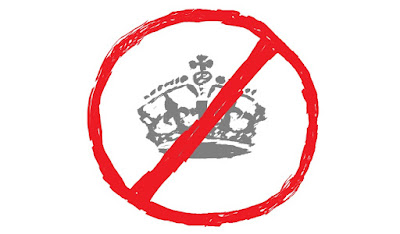Barbados has ditched the Queen as head of state based on a parliamentary vote, but this change likely does not reflect the wishes of the population.
According to a report, the reason Barbados did not hold a referendum on the issue of head of state is because the population would have rejected the change. The parliament sidestepped asking the population, knowing the population would vote against them.
There was good reason to think the people of Barbados would not accept removing the Queen as head of state. When the question was posed to Australia, Tuvalu and St. Vincent and the Grenadines, these countries all voted by a majority to retain their current system.
Sometimes, specific parts of a territory even want to stay under the colonial vestiges and it is right to let them stay as long as the populations still wish. This is the case with British Overseas Territories and French overseas departments such as Mayotte, which dissented from the Comoros when it gained independence and remained French.
Barbados as an unnecessary republic
If you compare Barbados with the way countries became healthy republics, there is a difference. Republics became republics as a founding act in their country's history and it defined their national identity, often alongside adopting a state religion. Such was the case with Pakistan, for example, where being a republic was a necessary part of the constitution. The prime historical example of France became a republic as it transitioned into a nation-state rather than a fief.
Barbados was already a democracy and an independent nation with an established and stable identity in 1966. The head of state was just a vestige, only important when it comes to the perception of authority, perhaps compelling the politicians to act as servants to the nation and not masters. There seemed to be a reason for it.
What happened only seems superficially good at this moment, through a simplistic anti-colonial lens. Without that rosy factor, or had this change been anything else of a similar significance, such as adopting a state religion or a new monarch, it would have elicited outrage.
Power votes for power
Those who organised the vote, the representatives in parliament, want to be perceived to have more authority and to be masters of the nation and its identity. Their vote was about themselves, not the population. One hundred percent of them voted for themselves to have more authority, which should surprise no-one.
It was only natural that the normal population would not get any say in the matter. Most of the time, ordinary citizens don't sympathise with power-hungry politicians and tend to block their aspirations.
If anything, sidestepping a referendum on an issue concerning identity and the definition of the authority in their land is a cause for Barbadians to be a bit worried rather than happy. What other kind of power will these politicians vote for themselves to have, in future? We can only hope that they are well-intentioned and do not vote for unlimited terms in office and bans on criticism of their majestic authority.
If you put the question to politicians about whether they would like more power and authority, they are prone to say yes. Instead, a referendum should have been held in Barbados.

